Intentar ORO - Gratis
Mary Midgley (1919-2018)
Philosophy Now
|October/November 2020
Nat Dyer looks at the humanity of a philosopher who tried to make philosophy more human.

Midgley – one of the most important philosophers of recent times – took a different path. She published the first of her eighteen books at almost sixty, only after raising her children. She was ‘jolly glad’ for the delay, she told an interviewer: “I didn’t know what I thought before then.” Once her mind was made up, though, she expressed her ideas with uncommon clarity and force. As well as her books, she wrote hundreds of articles [including some for this magazine, Ed], on human nature, evolution, animals, myths, and poetry. She wrote in a vivid, jargonfree style rare for contemporary English-speaking philosophers, using striking, down-to-earth images: of aquariums, Lego, the plumbing under the floor…
Her penetrating style was never more apparent than when she kicked off the intellectual brawl for which many still know her. In 1979, when Midgley was a comparatively little-known thinker working in a provincial university, she wrote an article for the journal Philosophy on the moral consequences of Richard Dawkins’ global smash hit,
Esta historia es de la edición October/November 2020 de Philosophy Now.
Suscríbete a Magzter GOLD para acceder a miles de historias premium seleccionadas y a más de 9000 revistas y periódicos.
¿Ya eres suscriptor? Iniciar sesión
MÁS HISTORIAS DE Philosophy Now

Philosophy Now
Affirmative Action for Androids
Jimmy Alfonso Licon asks, when should we prioritise android rights?
11 mins
June/July 2025
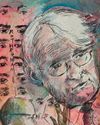
Philosophy Now
Welcome to the Civilization of the Liar's Paradox
Slavoj Žižek uncovers political paradoxes of lying.
13 mins
June/July 2025
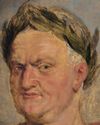
Philosophy Now
The Importance of the Purple
Massimo Pigliucci looks for threads of integrity in a morally compromised world.
3 mins
June/July 2025

Philosophy Now
Ethics for the Age of AI
Mahmoud Khatami asks, can machines make good moral decisions?
10 mins
June/July 2025
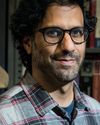
Philosophy Now
Anand Vaidya (1976-2024)
Manjula Menon on the short but full career of a 'disciplinary trespasser'.
7 mins
June/July 2025

Philosophy Now
Studying Smarter with AI?
Max Gottschlich on sense and nonsense when using AI in academia.
5 mins
June/July 2025

Philosophy Now
Excusing God
Raymond Tallis highlights the problem of evil.
7 mins
June/July 2025

Philosophy Now
Stephen Fry
Perhaps unshockingly for someone who is an actor, broadcaster, comedian, director, narrator and writer, Stephen Fry has a deep interest in words and how we use them. After hearing him lecture on that subject, Marcel Steinbauer-Lewis asked him about Artificial Intelligence and how it connects with the extraordinary lure of language.
8 mins
June/July 2025
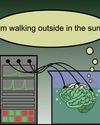
Philosophy Now
Is VR Meaningful Escapism?
Amir Haj-Bolouri enquires into possible meaning through technology.
9 mins
June/July 2025
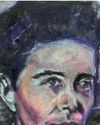
Philosophy Now
What Simone de Beauvoir Got — And Didn't Get – About Motherhood
Nura Hossainzadeh argues that motherhood is both physical and transcendent.
12 mins
June/July 2025
